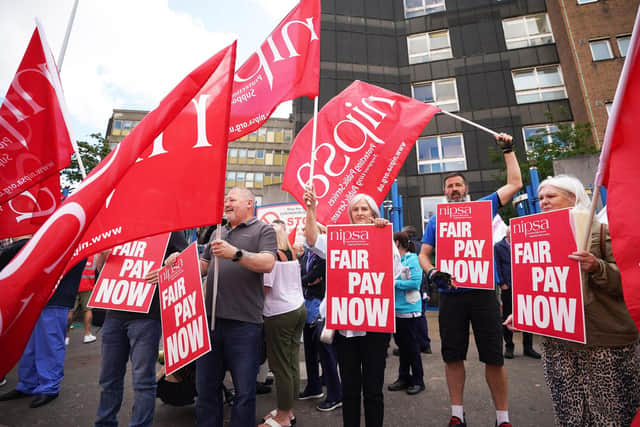Cost-of-fuel crisis: Northern Ireland carers, social workers and other health staff to refuse use of personal vehicles in targeted industrial action over mileage rates
and live on Freeview channel 276
The trade union Nipsa has organised the action short-of-strike to highlight what it described as the “very poor” mileage rates paid to health staff who work in the community, following sharp increases over the last 12 months to fuel and maintenance costs.
Meanwhile, domiciliary care workers represented by the Unison trade union are also set to stage a protest at the Ulster Hospital this afternoon in a bid to highlight the same issue.
Advertisement
Hide AdAdvertisement
Hide AdTerry Thomas, from Nipsa, spoke to the News Letter in advance of the action.


“Those people who use their personal vehicles for work will be refusing to use them, which therefore puts the emphasis back on the Trusts,” he said. “That’s to highlight the very low mileage rates that are being paid.
“This will have a major effect in the community setting – it will be the likes of social workers, domiciliary care workers, staff who work in family and childcare social work, older people’s social work. They will be working from their offices, or the Trusts will have to find them alternative transport.”
He continued: “The mileage scheme is very poor. It pays 56p for the first 2,500 miles and then drops away down. The Minister [Robin Swann, who has since left the post due to the powersharing impasse at Stormont] put in place last June an additional 10p – that is due to run out at the end of March, which is quite soon. We’re pressing to have that extended, and also to have the Department sit down and look at Northern Ireland as an individual area as opposed to joining us with England. England would be where our Agenda for Change terms and conditions come from, but in England it only covers the likes of the hospitals whereas here it’s health and social care. It is primarily the social care side where we have people using their own vehicles, often in rural areas, and running up more than 2,500 miles very quickly.”
Mr Thomas added: “This is an issue which can be easily resolved if people would get around the negotiating table with the trade unions.”